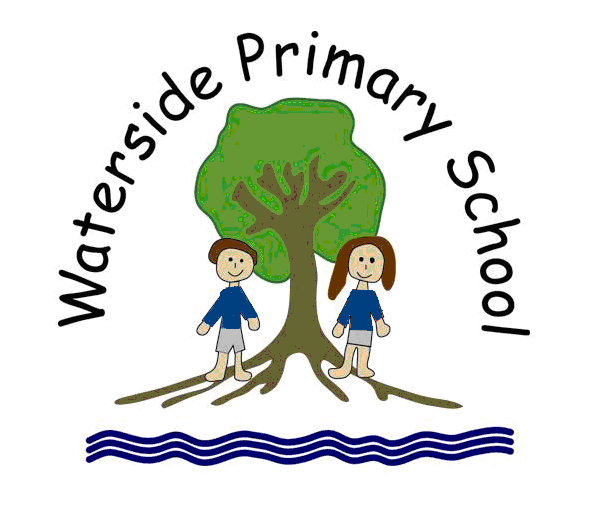Curriculum
Curriculum Statement:
At Waterside we strongly believe in providing a curriculum that develops children’s knowledge of the world, whilst also providing them with the life-long skills, the aspiration and the ambition to be healthy, successful, environmentally aware citizens that believe in contributing positively to society.
Throughout the journey through our school, opportunities will be created that empower children to become curious, questioning learners who can develop and find personal interests and talents whilst also being challenged to think creatively, debate and discuss with clarity, and even fail successfully.
This is done though well sequenced planning of a rich and broad curriculum, regular wider whole-school events, visitors and visits, residential trips, a wide range of sporting experiences and pupil led events and opportunities.
Support guides for Parents and Children:
Age Related Expectations:
National Curriculum in England
Maths End of Stage Expectations for Waterside Child
Reading End of Stage Expectations for Waterside Child
Writing End of Stage Expectations for Waterside Child
Other support:
Grammar definitions and help guide
The Early Years Foundation Stage (EYFS) applies to children from birth to the end of the reception year. Children entering Dolphin Class (our Reception class) come from a range of settings, and we work with parents and other settings and professionals to provide a smooth transition into our school.
Aims and Objectives
- To celebrate diversity, and promote equality of opportunity for all children
- To provide a curriculum that is broad, relevant and personalised which offers continuity and progression and develops their physical, intellectual, emotional and social abilities
- To acknowledge each child’s individual strengths and address her/his special needs
- To provide a secure and stimulating environment that encourages children to be active learners, and enables each child to develop her/his unique pattern of interests and talents
- To build positive partnerships with parents and the wider community to promote the development of the whole child
The EYFS is based upon four principles:
- A Unique Child
- Positive Relationships
- Enabling Environments
- Learning and Development
Areas of Learning
The EYFS is made up of seven areas of learning: three Prime Areas and four Specific Areas:
Prime Areas
- Personal, Social and Emotional Development.
- Physical Development.
- Communication and Language.
Specific Areas
- Literacy
- Mathematics
- Understanding the World.
- Expressive Arts and Design.
All areas of learning are delivered through a balance of adult-led and child-initiated activities.
Learning through Play
At Waterside play underpins the Early Years Foundation Stage curriculum, as it is through play that children often make sense of the world around them. The children are involved with group and individual play, some initiated by adults and some by children. Children are able to take risks, make mistakes, and learn from them. We encourage our children to be resilient, reflective, responsible, resourceful and reasoning learners, just like all our learning pirates at Waterside.
Observation, Assessment and Planning
In the Early Years Foundation Stage, we plan a curriculum which incorporates the prime and specific areas of learning through 5 aspirations. These aspirations expose the children to a wealth of experiences across the curriculum and combine all areas of learning in milestones which build across the year - in both teacher-led and child-led provision.
We make regular assessments of children’s learning, and we use this information to ensure that future planning reflects children’s next steps. Assessment in the EYFS takes the form of observation, tracking sheets and ‘Tapestry’, which involves the teacher and other adults as appropriate. Tapestry also informs parents and teachers of the child’s progress and wow moments.
Within the final term in Reception, we provide a written summary for parents, reporting their child’s progress against the seven Early Learning Goals – Emerging, Expected or Exceeded. We also report on the Characteristics of Learning of each child. We then give an opportunity for the parents to discuss these judgements with their child’s Reception teacher.

Phonics and Spelling
Phonics is taught from Nursery to Year 2, and in KS2 if required.
We use Bug Club Phonics throughout school. This is a new government-approved scheme which uses interactive lessons and resources to progress children through a highly structured systematic synthetic programme. Children will have personalised Bug Club accounts online, meaning that children and parents can access current learning at home, with direct links to our Bug Club independent reading scheme, ensuring each child has books matched to their phonic level. 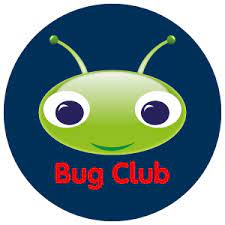
Children are expected to enter school having completed Phase 1 in their nursery provision. However, Phase 1 should be continued alongside the other phases. Phonics in Reception (Phase 2, 3) and Year 1 (Phase 4, 5) is taught for a daily 20 minute session.
By the end of Year One, the children will be tested on phonic knowledge with the phonics screening tests which is submitted to the local authority.
By the end of Year Two, children should be equipped with the phonics that they need in order to read and write and hopefully have completed up to phase 6.
In Y2, the Babcock No Nonsense Spelling program picks up from Phase 6 of Bugclub and develops the transition from phonological spelling to the awareness of particular spelling rules and patterns. Where Phase 5 was not secured for children – this should be taught in daily discrete sessions for groups or individuals during Year 2.
In Y3-6 the Babcock No Nonsense Spelling scheme is used to teach whole class spelling discretely 3x a week (20 minutes) within discrete whole class sessions. This is separate from the testing of spelling words.
Where children are behind their peers, they must catch up additionally to age-related expectations and will be taught phonics or previous years' spelling rules to fill their individual gaps. This can be implemented by a teacher or teaching assistant.
Writing
At Waterside, we aim to deliver an engaging and exciting Literacy curriculum driven by experiences and high-quality texts. The Literacy curriculum is delivered daily across the school and takes form in several ways;
- Literacy lessons
- Discrete whole class sessions for specific areas of Literacy; reading, phonics, spelling and handwriting
- Opportunities to write at length in all areas of the curriculum
In Literacy sessions we incorporate all areas of the curriculum; reading, sentence level work, grammar, spelling, writing and speaking and listening within a learning journey. The learning journeys that we create are designed to use high quality texts, models and examples to engage, inspire and enable children to produce high quality outcomes on their own. Wherever possible, we make the outcomes purposeful so that children feel excited and proud of the work they have produced and get opportunities to share this with a wider audience. For example, children may make books to share with other children, produce writing (speeches or poetry) to be performed. Letters they write may be sent and responded to.
In order to achieve greater depth in their writing, children are given regular opportunities to reflect on the strategies and choices they have made in their writing and the impact with a focus on vocabulary.
Children across the school are given regular opportunities to edit their writing in green pen – making changes to the non-negotiables – with an enhanced focus on spelling, punctuation and word choices.
Handwriting: 
A joined style is taught from part way through Year 1 alongside Phonics and follows the letter formation that is in the Appendix of this document. This continues in Year 2 until standard for handwriting is met for the majority of the class.
In Year 2 – 6 where handwriting standard in not met there will be at least 20 minutes discrete teaching of handwriting for groups or individuals, with daily opportunities to practise.
Reading: 
At Waterside, we strive to be a reading school. Children are encouraged to read regularly at home both real books and on our online reading platform - Bugclub independent. Pupils are given regular opportunities to read for pleasure in class and will often hear their teachers read aloud. Books and love for reading are pivotal in building children's fluency and engagement.
We teach reading through a whole class approach, focusing on a shared text. This enables children to develop all the strands of their reading skills, including the ability to retrieve, summarise, make inferences and discuss texts. Children will not only be involved in reading during these sessions but also rich discussions and a variety of tasks, help them to develop their deeper reading skills.
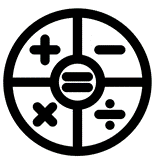
Mathematics
Throughout KS1 and KS2 the children take part in daily maths sessions, all of which are channelled to challenge, revisit, consolidate and highlight areas for future work. Children in KS2 are also able to access daily fluency tasks such as; '5 a day' or 'Fluent in 5', which are designed to further embed the key facts and language of the primary maths curriculum. As part of their mathematical journey the children will have numerous experiences across a range of topics in their year group. These themes may include all, or some of the following:
- Number and place value
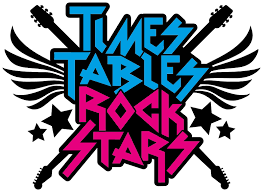
- Number – addition, subtraction, multiplication and division
- Number – fractions, decimals and percentages
- Ratio and proportion
- Algebra
- Measurement
- Geometry – properties of shapes
- Geometry – position and direction
- Statistics
Great maths teaching starts with the basics for a short period for all pupils and then ramps up to the next and more difficult stages (for everybody to try) and then looks to scaffold for those who need it. It involves lots of teacher explanations, demonstrations etc.
Throughout KS1, the emphasis is upon building key building blocks for future success. The principal focus of the mathematics teaching is to ensure that pupils develop confidence and mental fluency with whole numbers, counting and place value. The children are encouraged to question, explore and explain through active experiences. They are encouraged to use a multi-representational approach that further consolidates their learning and provides a stimulating and exciting maths curriculum. This is possible due to the rich and challenging problems available, alongside the encouragement to use resources available to enrich their learning.
During their time in KS2, the children are supported in using the resources and approaches to maths, from their formative years. Every child is encouraged to use and access resources if still needed; in order to consolidate their learning. They are further challenged to solve problems by applying their understanding to a variety of problems with increasing sophistication, including breaking down problems into a series of simpler steps and persevering in seeking solutions.
They are challenged to provide more recorded explanations for their work, developing the ability to reason and make links alongside the use of derivation boards. Their confidence and ability to calculate mentally is strengthened, through regular practice and reinforcement; paying particular attention to the learning of times tables facts. Throughout this key stage the children are closely monitored through self/peer and teacher assessment.
In Year 4 children are screened in a Multiplication times table check. We acknowledge that times tables are a fundamental skills in Maths and the very building block for many concepts. Times Tables progress is monitored by our Pirate x tables and frequent practise on TTRS at home and in school is essential.
Across Key Stage 1 and 2 there is also the expectation that parents/ carers will engage with, and support, their child’s learning in maths. Every half term, each year group sends out KIRFS – Key Instant Recall Facts- so that home learning can take place, practising mental strategies and knowledge that is needed in order to fully succeed within that year group.
In both Key stages the focus is on fluency, accuracy and problem solving. Children with secure, mastered, understanding will be challenged through rich and sophisticated problems before moving onto new content. Those who are not confident with the content will be supported to consolidate their understanding through additional teaching before moving on, at the same or similar pace.

Science is an important aspect of the curriculum across KS1 and KS2 at Waterside. It provides the foundations for understanding the natural phenomena and man-made world in which we live. This is achieved by building key knowledge and understanding of concepts, through developing curiosity, asking questions and developing hypotheses'.
The skills of enquiry should be at the heart of every science activity.
Across both key stages, children will have opportunities to work scientifically, starting in KS1 with observation, gathering data, describing relationships and asking questions. These skills are then developed in lower KS2 as well as introducing more scientific language, classification and fair testing.
In upper KS2 children will be expected to further develop the skills taught throughout their science education so far and begin to learn how conclusions support their work but more often raise more questions and be able to adapt their experiments to produce more precise answers to their questions. This will equip Waterside pupils with the scientific knowledge required to understand the world around us today and the implications for the future of science and the world.
Science at Waterside is taught in one of 2 ways. Most science topics are taught separately from other curriculum areas, focusing on the scientific concepts and skills needed to fully understand the learning. Some topics throughout the curriculum lend themselves to being the main topic focus for a term where this becomes the focal point to most cross-curricular learning for the duration of the unit.
Teachers will either use one afternoon a week to teach science or block out a few weeks to cover the unit using most afternoons and ensuring that there is full coverage of the curriculum. It is a statutory requirement that science is taught for 2 hours per week.)
Progress in science is recorded through teacher assessment linking to Hampshire’s key ideas for each unit of work. Assessment is then used to inform future planning and ensure that children are supported and ready to engage in an ever-changing scientific community.
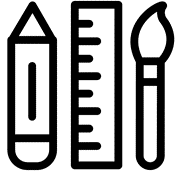
At Waterside, we follow the ‘Design (plan), Make, Evaluate’ approach to the teaching of DT, as outlined in the National Curriculum Programmes of Study document.
Design and Technology education involves two important elements – learning about the designed and made world and how things work, and learning to design and make functional products for particular purposes and users.
In Design and Technology, children acquire and apply knowledge and understanding of materials and components, mechanisms and control systems, structures, existing products, quality and health and safety.
Our curriculum includes opportunities to design and model using paper, card and construction kits as well as ICT. Children will work with a range of materials including wood, textiles, and a variety of food ingredients. The safe use of tools and the importance of food hygiene will also be covered.
There are three core activities children engage with in Design and Technology:
- Activities which involve investigating and evaluating existing products
- Focused tasks in which children develop particular aspects of knowledge and skills
- Designing and making activities in which children design and make ‘something’ for ‘somebody’ for ‘some purpose’
These three activities are combined in sequence to create a Design and Technology project.

The use of ICT falls broadly into 3 categories:
- Computer Science
- Information Technology
- Digital Literacy:
The core of computing is computer science, in which our pupils are taught the principles of information and computation, how digital systems work, and how to put this knowledge to use through programming. (Computer science covers topics such as: How computer networks work, algorithms, sequence, selection and variables)
Building on this knowledge and understanding, pupils are equipped to use information technology to create programs, systems and a range of content. Information technology is very broad as it involves the creation, organisation and manipulation of digital content in both key stages – digital content could be interpreted as many things from audio to images to film and beyond.
Computing also ensures that pupils become digitally literate – able to use, and express themselves and develop their ideas through, information and communication technology – at a level suitable for the future workplace and as active participants in a digital world. (Digital literacy covers topics such as Word processing, using word and other office software, databases, web publishing, creating surveys.)
E-safety:
We have a duty to ensure children are equipped for a digital world. To this end, e-safety is embedded in the curriculum frequently from the foundation stage. In addition, the school will take part in Internet Safety Week (February).
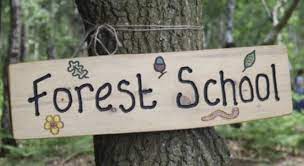
All children at Waterside have access to Forest School in blocks throughout the school year. During these sessions, children develop knowledge about their immediate natural environment, manage and assess risks in a number of ways, developing skills right across the curriculum.

At Waterside, many links are made between humanities and other foundation subjects through our lively topic-based approach. Children have opportunities to ask and answer questions and to take part in discussions and debates. Links are also made with core subjects; reading and recording information supports children’s literacy, using timelines, calendars and graphs gives meaning to mathematical concepts in real life.
Experience outside the classroom is an important part of learning in history across all key stages. We include as many opportunities as we can to involve children in practical research and enquiry. Visits and visitors are also used to support teaching and learning in a range of subjects.
History stimulates children's interest in order for them to develop knowledge, skills and understanding, so they are curious to know more about the past. They will develop an understanding of how the past influences the present and thus their decision, personal choices, attitudes and values.

As with history, many links are made between humanities and other foundation subjects through our lively topic-based approach. Links are also made with core subjects; reading and recording information supports children’s literacy, learning, using maps to represent objects, studying space, scale and distance, learning how to use grid references and graphs gives meaning to mathematical concepts in real life.
Our Geography curriculum intends to inspire pupils with curiosity and fascination about the world and its people. As a result, children will gain knowledge about diverse places, people, resources and natural and human environments, together with building a greater understanding of the Earth's key physical features and human processes.
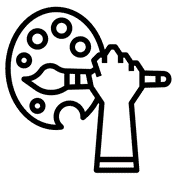
Teachers link Art objectives to units of teaching and use the National Curriculum as a basis for their planning.
Units are chosen to ensure coverage, progression but most importantly a love of art across the key stages. With a focus on drawing, painting, sculpture, printmaking, ICT, collage. (Painting and drawing is carried out in every year group each half term alongside the focus art project).
An artist study will be studied in each year group in Art as part of theme or as a stand alone if no link can be made.
Sketchbooks
In Art, class sketchbooks are used in Key Stage 1 and 2. Sketchbooks are carried up with the child so that children can regularly record, collect and explore ideas and images, information relevant to current and ongoing work and experimentation.
The sketchbook does not follow the school’s presentation or marking policy; we feel very strongly that the sketchbook belongs to the child. It’s not just a book – but is a space where children can freely express, create, develop and learn as well as respond to artists, designers, architects and/or craftmakers.
In Key Stages 1 and 2, through a variety of creative and practical activities, children are taught the knowledge, understanding and skills needed to engage in an interactive process of Art & Design. They work with a range of mediums from watercolours to charcoal to gain an understanding of the different forms allowing them to make the best choices to be a successful artist.
Teachers use the National Curriculum key skills to assess children’s progress in Art & Design based on: observations during lessons; work in sketch books and the children’s finished design and evaluation.

At Waterside we celebrate and welcome differences in the world and build confidence in speaking another language in readiness for secondary school. We aspire for all our children to have confidence and be successful when moving to KS3. We work closely with our secondary colleagues to provide sessions which support our children in doing so.
Learning a foreign language is a statuary foundation subject for every pupil in Key Stage 2. An understanding of the structure of a new language helps children to deepen their knowledge of their own language, as well as provides them with the opportunity to reinforce knowledge and skills in other curriculum areas.
Our taught language is French.

We believe that physical education and sport has a vital role to play in the physical, social, emotional and intellectual development of children. Physical education and sport are important in giving children the knowledge, understanding and tools to make informed choices about healthy living and have a positive impact on their own health and well-being.
The physical education curriculum at Waterside, aims to provide for pupils’ increasing self- confidence through an ability to manage themselves successfully in a variety of situations. Children will have the opportunity to take part in a wide range of sports and physical activities, carried out in a safe and supportive environment, where effort and hard-work, as well as success, is celebrated and enjoyment and working together is promoted.
Through the use of REAL PE schemes of work across all key stages, the children develop their agility, balance and coordination, success in healthy competition and cooperative learning. Teaching styles do not always focus on sport specific skills, instead encourage creativity, cooperation and self-challenge.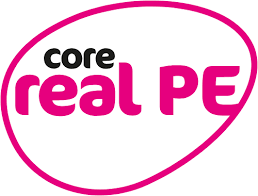
During their time at Waterside, the children will also have access to a range of sports and physical activities that challenge them to improve their personal fitness. These include REAL PE, football, cross-country, tag-rugby, hockey, tennis, sports day events, dance, gymnastics and multi-sports, taught during school time or in an after school club. These activities are delivered either by class teachers, for whom physical well-being is a priority, or by a highly qualified sports coach.
Through the opportunity to participate in team games, inter/intra school competitions (arranged with local schools by our local school sports partnership) and sports day children are also encouraged to understand the importance of fairness, collaboration and communication.
All children, regardless of ability or need, have access to at least two hours of physical education per week. Planning for differing abilities is based on the STEP principal (making changes to the space, the task or time, equipment and people).
This time can also be increased by taking up opportunities in regular sporting activities, during and after school.

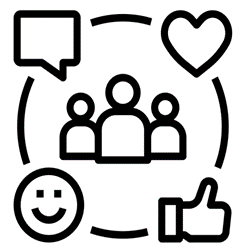
At Waterside Primary School, the PDL curriculum will enable our children to become healthy, independent, responsible and altruistic members of a society. It will guide and support them to form healthy, respectful relationships with peers, adults and strangers. It will teach them about risks and how to keep themselves and others safe. It aims to help them understand how they develop personally and socially, and tackles many of the moral, social, spiritual and cultural issues that are part of growing up. We provide our children with opportunities for them to learn about rights and responsibilities and appreciate what it means to be a member of a diverse society. Our children are encouraged to develop their sense of self-worth by playing a positive role in contributing to school life and the wider community. They will be taught about how they can impact positively on the environment, by making decisions and taking responsibility.
We want Waterside children to grow into happy, healthy, successful adults, who can maintain and secure positive relationships, thus impacting on their personal well-being, but also on the well-being of the wider community.
The PDL curriculum will be made up of a range of opportunities to include:
- Discrete lessons
- Cross curricular linked learning
- Circle time and opportunities for discussion and debate
- Theme days/whole school events
- Response to topical issues
- School visits/visitors to include community links and business/career links
- Residential visits
- Assemblies
- Extra-curricular activities

At Waterside Primary School our teaching and learning in religious education (RE) follows the Living Difference IV Agreed Syllabus for Hampshire, Portsmouth, Southampton and the Isle of Wight and relates to best practice being developed nationally in RE. RE at Waterside provides opportunities to promote children’s spiritual, moral, social and cultural (SMSC) development.
In the Foundation Stage and Key Stage 1 we study the religions Christianity and Judaism. KS2 studies Christianity, Hinduism, Islam and Humanism. Years 3 and 4 focus on Christianity and Hinduism. Years 5 and 6 study Christianity, Islam and Humanism.
The Hampshire Agreed Syllabus is required “to reflect that the religious traditions of Great Britain are in the main Christian whilst taking account of the teaching and practices of the other principal religions represented in Great Britain.” At Key Stage 1 the children are required to study Christianity and one other religion)
We teach units of learning based on concepts such as: thanking, remembering, angels, specialness, celebration, authority (see long term overview for RE at Waterside – themes and concepts). The themes and concepts within the units covered reflect a progression in difficulty and complexity from Year R-2. Children are taught first to attend to their own experience of particular concepts, before enquiring into related religious as well as non-religious ways of living, represented in Great Britain and beyond. Within each unit, the children use the skills of Religious Education in Living Difference III, which are the enquiry skills of Communicate, Apply, Enquire, Contextualise and Evaluate. In Foundation Stage (Year R) and Key Stage 1 (Years 1 and 2), greater time is given to the Communicate and Apply steps of the enquiry process, where the children are generally still working with ideas that are familiar to them. They think about their own experience of a concept, before exploring their own responses in relation to others’ experience. They then become even more aware of others’ responses and might give examples from their own experience of the concept in different situations.
